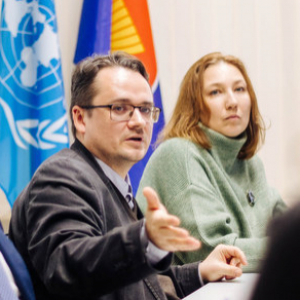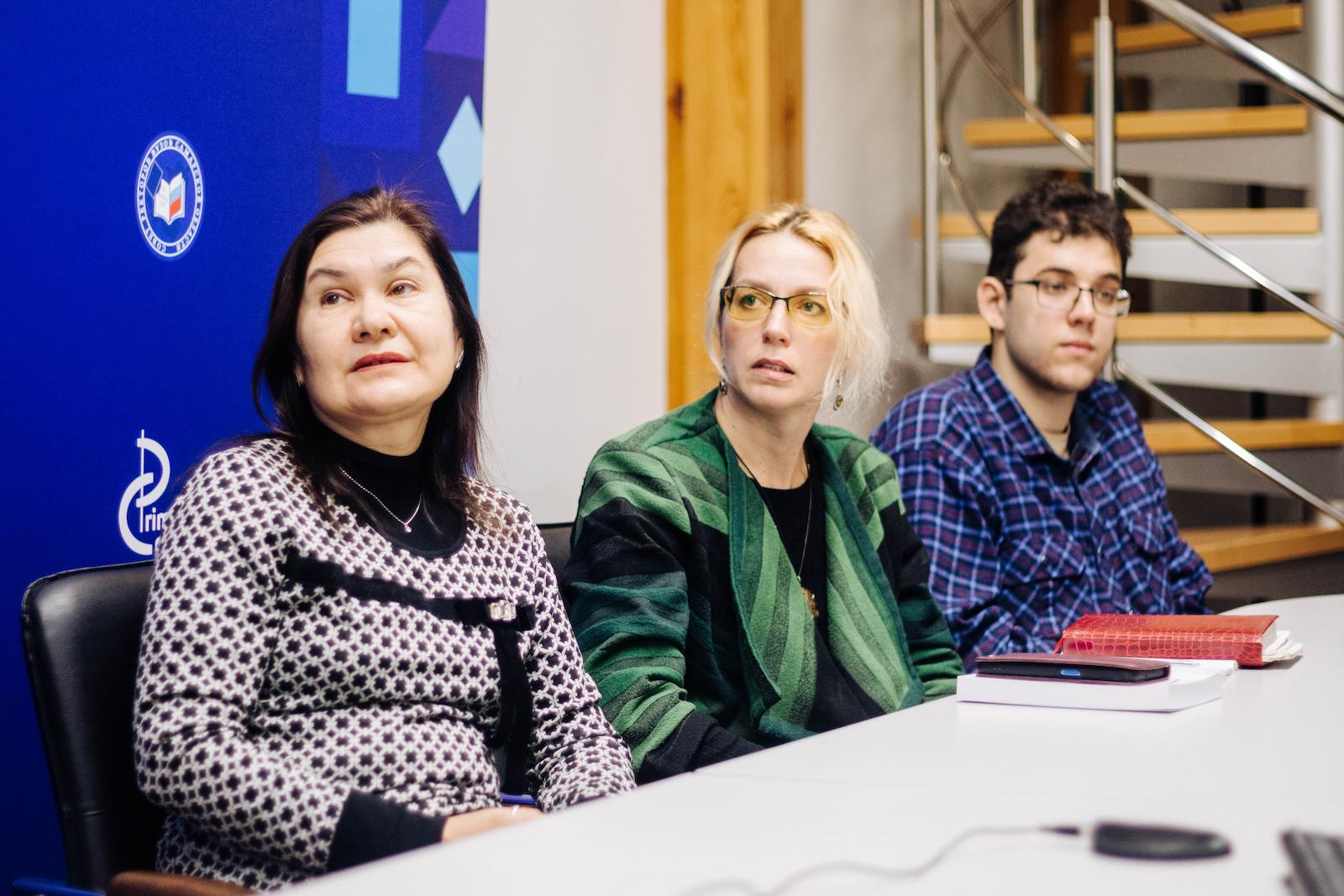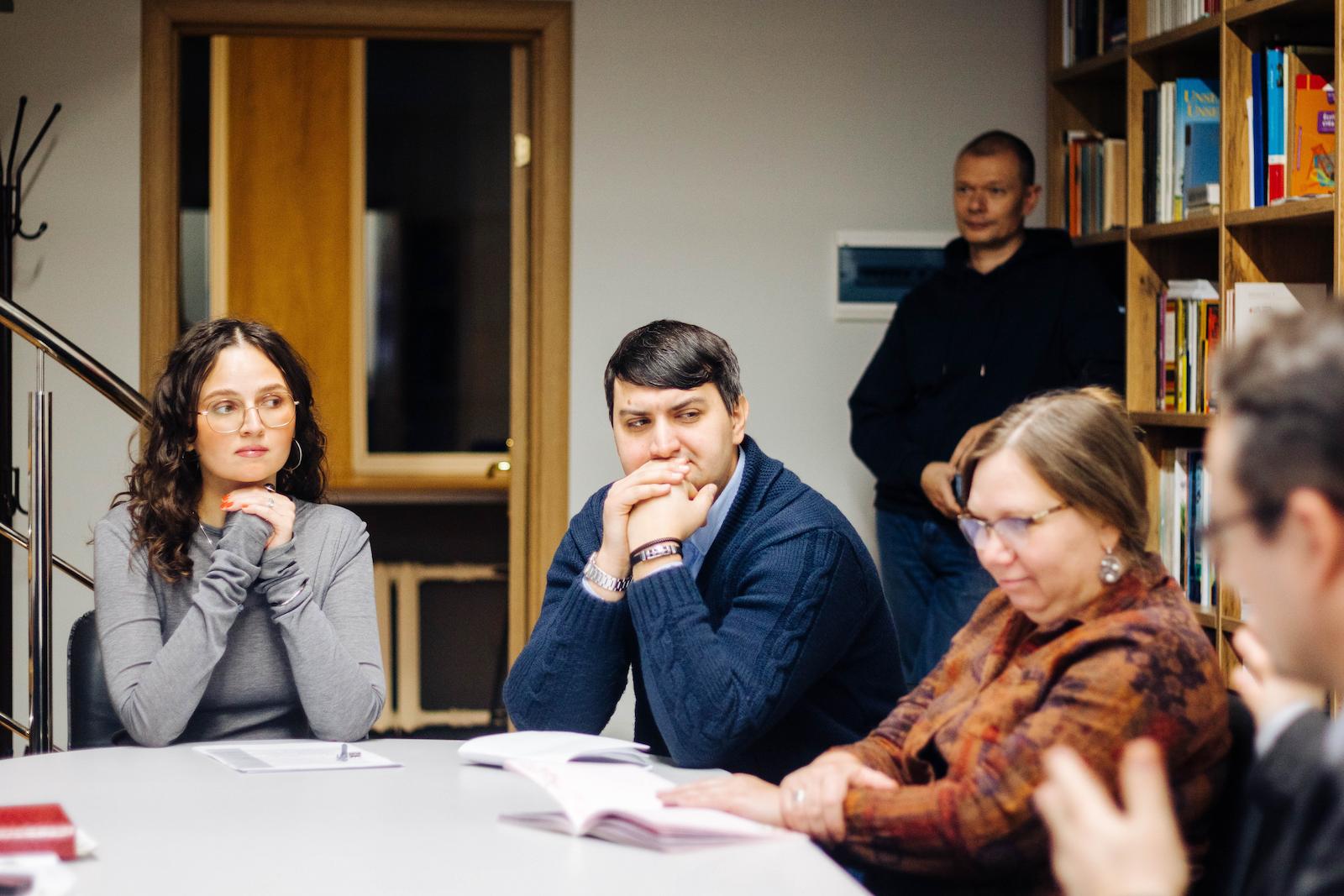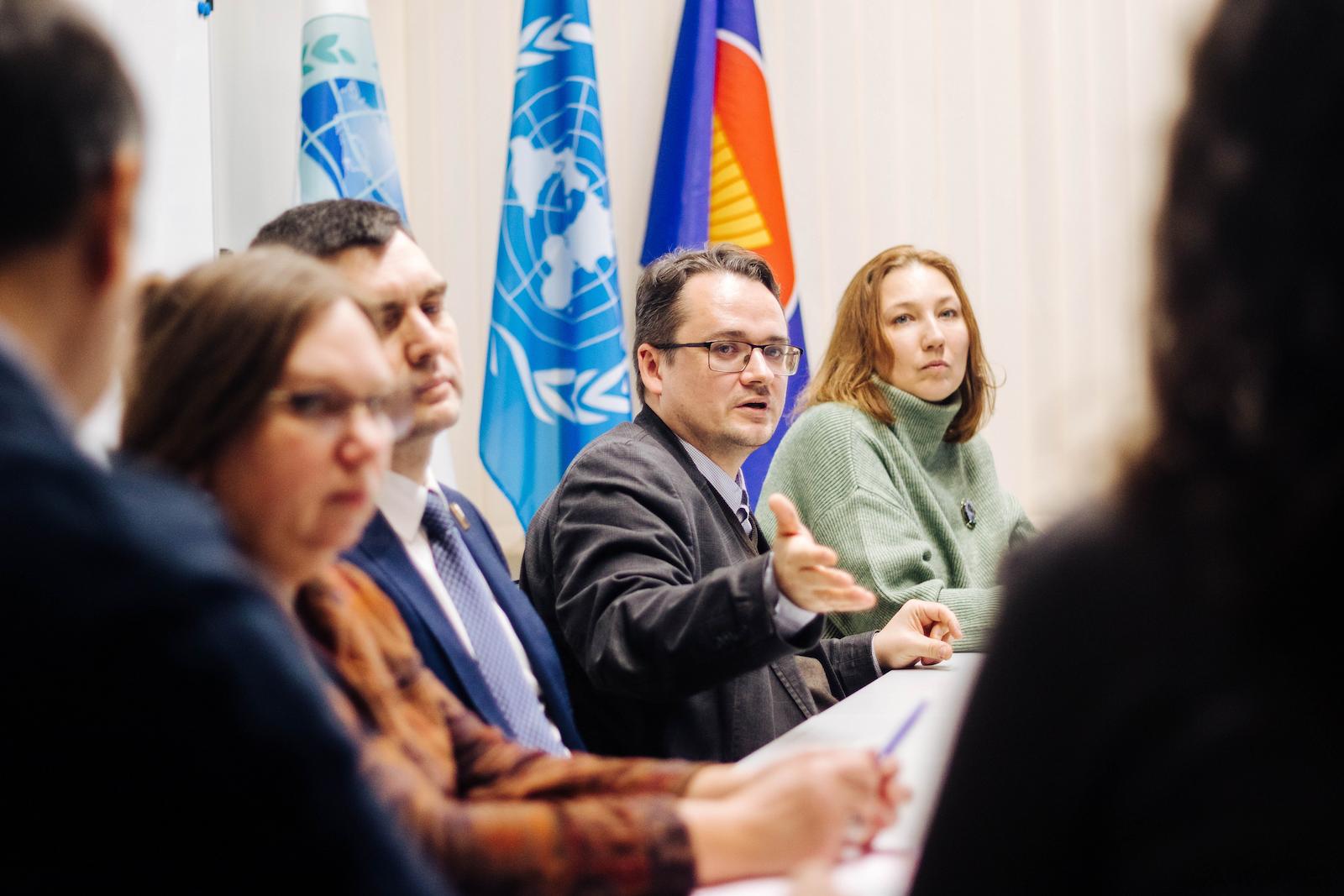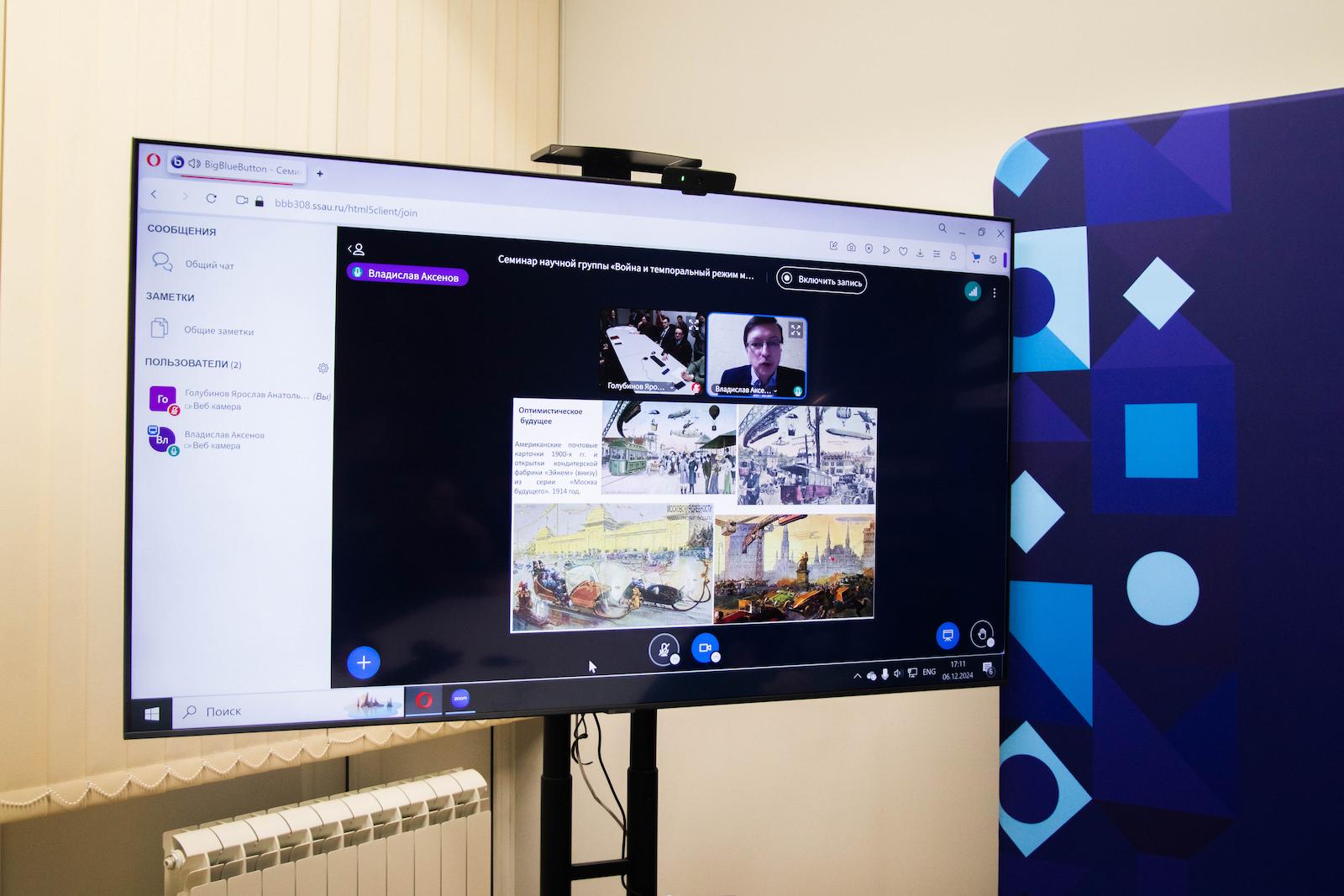On December 7, in the UN Hall of the Primakov Regional Centre for Development of Public Diplomacy and International Relations, the scientific seminar conducted by the research team working under the Russian Science Foundation grant No. 24-28-01430 “War and the Temporal Mode of Modernity: Research of the Vital Experience of the Present in Perception of Combatants and Noncombatants of World War I”.
At the seminar, reports on the work done were presented by Ya.A. Golubinov, Dean of the Faculty of History, Candidate of Historical Sciences, Associate Professor; Yu.A. Zherdeva, Candidate of Historical Sciences, Associate Professor at the Department of General History, International Relations and Documentary Studies, A.I. Eliseev and A.E. Gulina, Senior Lecturers at the Department of National History and Historiography, Candidates of Historical Sciences.
Ya.A. Golubinov spoke about peculiar features of temporal organization of the life of combatants on the Russian Front of World War I. The researcher showed that in the eastern and western theaters of military operations, experiences of time were similar. Combatants adapted to the changing pace of life, the rhythm of events, alternation of military operations and periods of forced inactivity. A.E. Gulina clarified that in the life of the combatants, religious holidays were of great importance, marking the change of seasons, breaking (like intermissions in the theater) the routine of front-line life to have already become familiar. A.I. Eliseev revealed the significance of reading at the front, which allowed combatants to synchronize their lives with the life of the heartland (reading letters from home), other fronts and allied states (reading newspapers and magazines) and, finally, with the cultural life of society (reading fiction). The report made by Yu.A. Zherdeva was devoted to theoretical aspects of the temporality research, in particular, the works of the historian and cultural critic Stephen Kern, who included phenomena of World War I in the framework of a longer period – the Modernity (1880–1918).
The report “Public Mood in the Early 20th Century: from Futurist Shock to Temporal Uncertainty” was presented by V.B. Aksenov, Doctor of Historical Sciences, Associate Professor, Senior Researcher at the Centre for Studies of Modern Russian History and Political Science, IRH RAS. Together with the participants in the seminar, he discussed features of formation of mass ideas about the war, the revolution and the change of epochs in Russian society in 1914–1918.
The seminar was participated by Samara University’s teachers: Doctor of Historical Sciences, Associate Professor M.M. Leonov, Doctor of Historical Sciences, Associate Professor O.B. Leontieva, Candidate of Historical Sciences, Associate Professor L.N. Popkova, and a member of the SSS (Student Scientific Society) of the Faculty of History, the third-year student K.M. Dunavetsky. Debating on the reports was also participated by guests from Samara’s other universities and scientific institutions: Doctor of Philosophy, Associate Professor M.A. Koretskaya (Head of the Department of Philosophy and Culturology at SamSMU), Doctor of Historical Sciences, Associate Professor S.G. Malkin (Head of the Department of General History, Law and Teaching Methods at SamSSPU), Doctor of Historical Sciences, Professor N.F. Tagirova (SRC RAS), Candidate of Philosophy, Associate Professor N.A. Balakleets (SamSTU).
The seminar participants discussed not only the stated issues, but also, together with the members of the grant scientific group, outlined ways of applying the stated scientific optics to studying other historical periods, gave a number of tips on attracting the latest scientific literature, new sets of sources (documents from archives and libraries in Russia and other countries).
Photo: Alina Kavtaskina, Vladimir Kakovkin Illuminator Photo Club
